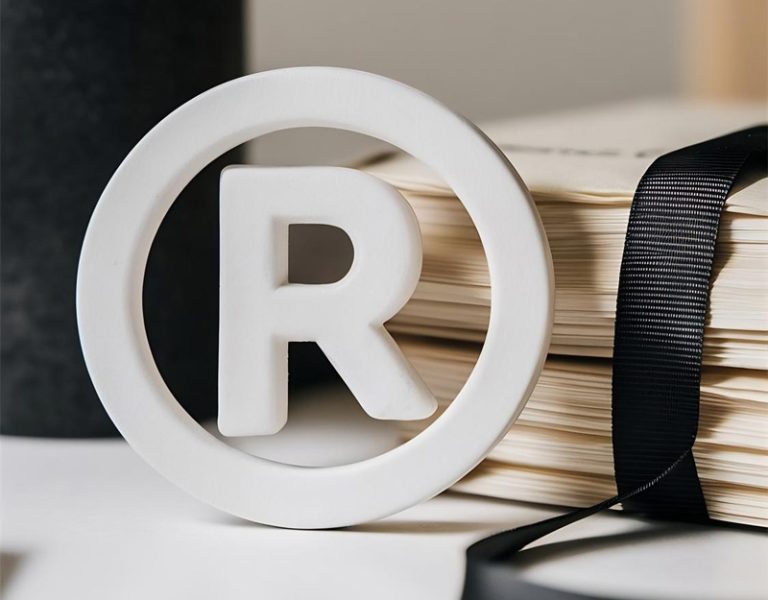Have you ever wondered what makes some companies more successful and resilient in the face of crises compared to others? The key often lies in seemingly minor details that may go unnoticed, such as the internal audit system. At first glance, this process might appear routine or merely an administrative requirement, but in practice, it serves as a compass guiding the organization toward efficiency, security, and sustainability.
In this article, we will outline why internal auditing has become one of the most critical tools for corporate growth and development, and how it can create tangible value in safeguarding your company’s interests and enhancing its governance framework. Continue reading to uncover the significance, benefits, and best practices of internal auditing.
What Is Internal Auditing?
Internal auditing refers to an independent activity designed to provide added value to any organization and to improve its internal processes. It functions as an advisory tool that assists organizations in achieving their objectives through a systematic approach aimed at enhancing risk management, control, and governance processes.
Internal auditing entails examining and analyzing the internal operations of an entity including operational, financial, and administrative activities to ensure efficiency, adherence to policies and regulations, and thereby minimizing misconduct, misuse, waste, or fraud within the company.
Objectives and Standards of Internal Auditing
The framework of internal auditing is established based on specific objectives and internationally recognized standards. These focus primarily on enhancing organizational efficiency, protecting assets, and ensuring compliance with applicable laws and regulations. The main objectives Internal Auditing include:
- Evaluation of Internal Control Systems: ensuring their effectiveness in protecting corporate assets and mitigating potential risks.
- Ensuring Legal and Regulatory Compliance: verifying that all corporate procedures comply with domestic laws, internal policies, and official regulations.
- Protection of Assets: monitoring and safeguarding organizational resources to prevent financial loss or damage.
- Detection of Irregularities or Fraud: identifying manipulations or misconduct that may endanger financial or administrative integrity.
- Assessment of Operational Efficiency: evaluating employee performance, identifying deficiencies, and recommending improvements to maximize overall productivity.
The Relationship Between Internal Audit and Corporate Governance
Internal auditing constitutes one of the fundamental pillars of corporate governance. It is not merely a routine administrative procedure but rather an independent, systematic, and continuous monitoring mechanism that plays a decisive role in safeguarding an organization’s integrity. By thoroughly examining the effectiveness of internal controls and how risks are identified and managed, internal audits ensure that companies operate in alignment with both strategic objectives and regulatory expectations.
This relationship is best described as complementary and interdependent. Corporate governance establishes the framework of principles, policies, and structures that guide a company’s management, while internal auditing provides the independent assurance that these governance mechanisms are effectively implemented. In practice, internal auditing serves as the “watchdog” of governance, directly supporting board members, audit committees, and executive management by promoting accountability, transparency, compliance, and long-term sustainability.
The Role of Internal Auditing in Enhancing Corporate Governance
- Improving organizational efficiency: Internal auditing evaluates compliance with policies, procedures, and legal obligations. It identifies gaps, inefficiencies, or procedural deficiencies and communicates them to management, enabling corrective action that strengthens the overall performance of the company.
- Reinforcing internal control systems: Through ongoing reviews, audits verify whether existing control mechanisms are adequate and functioning properly. This continuous monitoring provides assurance that vulnerabilities are minimized, reducing the likelihood of unauthorized practices or policy breaches.
- Managing risks effectively: Internal auditing functions as an early warning system. By detecting fraud, financial misstatements, system failures, or managerial misconduct, auditors enable organizations to undertake preventive and corrective measures well before such risks escalate into significant crises.
- Supporting informed decision-making: Reliable, objective, and evidence-based reports generated by auditors provide management and boards of directors with the insight necessary to make strategic decisions confidently and responsibly.
- Enhancing transparency: Internal auditing increases trust among stakeholders by delivering detailed disclosures of financial and operational conditions. This transparency fosters credibility with shareholders, investors, regulators, and even employees, all of whom rely on accurate data for informed engagement.
- Strengthening good governance principles: By ensuring that corporate governance policies are applied with fairness, integrity, and effectiveness, internal auditing reinforces the company’s credibility and its adherence to ethical standards.
- Increasing organizational performance and competitiveness: Ultimately, through continuous evaluation and recommendations, auditing contributes to higher operational quality, improved reputation, and stronger sustainability, granting the organization a competitive edge in the market.
Types of Internal Audit
Internal audits are not homogeneous; rather, they encompass multiple categories, each directed at a distinct aspect of organizational performance. This variety ensures that every critical function of a company receives specialized oversight:
Financial Audit:
This type focuses primarily on verifying the accuracy, completeness, and reliability of accounting systems, bookkeeping practices, and financial reporting. It ensures that records are free from material misstatements and that the organization remains in compliance with applicable financial regulations, standards, and accounting principles.
Operational Audit:
Operational audits measure the efficiency and effectiveness of day-to-day activities and business processes. They analyze whether resources are being used optimally, whether performance objectives are being achieved, and how departments can improve in terms of output and cost-effectiveness.
Compliance Audit:
This category evaluates the organization’s adherence to established laws, regulations, internal policies, tax obligations, and international standards. By verifying compliance, these audits help shield the company from legal penalties, lawsuits, fines, or reputational harm.
Organizational Audit:
These audits assess the degree of coordination, communication, and cooperation between different departments and organizational units. They aim to strengthen integration, identify structural inefficiencies, and promote synergy across various functions of the business.
Special Audit:
Special audits are carried out at the request of top management or the board of directors. They concentrate on specific issues, unusual transactions, or sensitive matters, such as suspected fraud, joint ventures, or large project implementations.
Information Systems Audit:
This type focuses on auditing IT infrastructure, data security mechanisms, system integrity, and information processing capabilities. It ensures that the organization’s digital environment is well-protected, resilient, and aligned with emerging technological compliance standards.
Environmental Audit:
Environmental audits examine the compliance of an organization with environmental legislation and sustainability practices. They evaluate not only the current impact of operations on the environment but also the adequacy of policies in fostering sustainable development and eco-friendly practices within the company.
What Are the Duties of Governmental Internal Audit ?
Governmental internal audit encompasses a set of roles designed to ensure the highest level of efficiency within public institutions. The most prominent duties can be summarized as follows:
- Ensuring that government entities comply with all regulations and laws that enhance the efficiency of financial and administrative aspects.
- Assessing the effectiveness of internal management and the accounting system within the institution in order to identify deficiencies or issues.
- Reviewing all financial transactions and detecting any errors, thereby strengthening the accuracy and reliability of financial data.
- Preventing any fraudulent activities within the institution’s internal systems and regulations.
- Assisting in the preparation of periodic management reports with a high degree of accuracy to achieve optimal outcomes.
- Reviewing all contracts and agreements to ensure the proper application of their terms and provisions.
Internal Audit Procedures
Internal auditing follows a systematic set of procedures designed to achieve high-accuracy governance objectives. These include:
- Defining Audit Scope and Objectives: determining the areas and goals of the audit.
- Audit Planning: preparing a timetable, allocating tasks, and defining the framework.
- Information Gathering: collecting records, financial statements, and employee feedback.
- Data Analysis: assessing results, compliance, and identifying risks or gaps.
- Audit Reporting: presenting findings, including strengths, weaknesses, and recommendations.
- Implementation Follow-Up: monitoring the adoption of corrective actions and evaluating their effectiveness over time.
Distinction Between Internal and External Auditing
| Aspect of comparison | Internal Audit | External Audit |
| Defination | Conducted within the organization by internal staff. | Conducted externally by independent third parties. |
| Objective | to improve internal processes, efficiency, and compliance. | to confirm transparency and accuracy of financial statements. |
| Scope | limited to organizational operations. | examination of external reporting and financial disclosures. |
| Primary Beneficiaries | Primary Beneficiary: senior management. | shareholders, regulators, and external stakeholders. |
| Independence | internal but structurally integrated. | fully external, carried out periodically. |
Internal auditing represents a critical instrument for effective corporate governance. It supports informed decision-making, enhances transparency, mitigates risks, and ensures adherence to policies and laws. To guarantee the most effective internal audit process in your organization, engaging a specialized legal and audit firm such as Sada Law Firm in Saudi Arabia is recommended, as it provides comprehensive legal counsel and audit-related services.
Frequently Asked Questions
Why do companies need internal auditing?
To improve internal control, manage risks effectively, ensure compliance, enhance transparency, and increase performance quality.
Which international standards govern internal auditing?
The Institute of Internal Auditors (IIA) standards, which emphasize independence, objectivity, professional quality, and transparency.
How are internal audit recommendations implemented?
A detailed report is submitted to top management, recommendations are
discussed, corrective measures are applied, and follow-up reviews are conducted.
Can organizations outsource internal auditing?
Yes. Companies without sufficient in-house expertise may rely on specialized external service providers, provided independence and objectivity are preserved.






